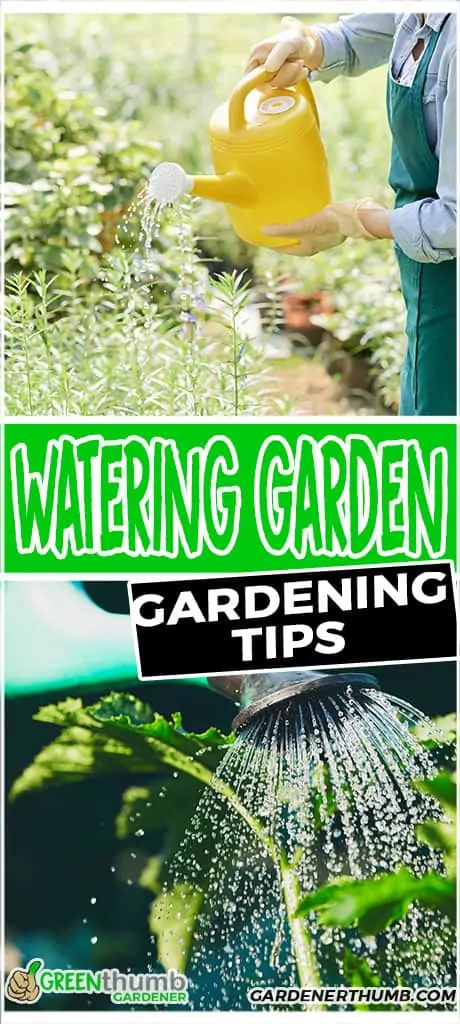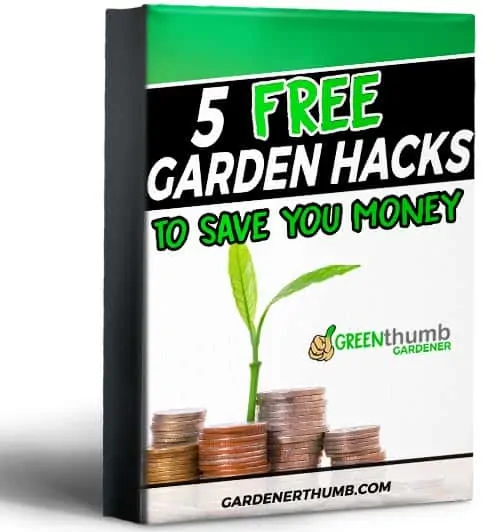Best Times To Water a Garden
Last updated: 06/10/21
Watering your garden is one of those things that can be a little tricky. When you live in a dry climate like Arizona, it gets even more tricky. A common question among new gardeners is when to water their plants to maximize the amount of produce they’ll get from their garden.
While there is no one answer to this question, there are some guidelines that can help you create a watering schedule that will work best for your garden.
Watering your garden is a very important aspect in order to gain healthy food and make gardening an attractive hobby. However, it is not an easy thing to do because it is essential to know when is the best time to water a garden.
On average, an American family uses around 320 gallons of water per day. Approximately 30% to 60% of that water is for outdoor uses such as daily watering of plants, lawns, gardens, etc.
Let’s help you figure out what works for you and save some precious water at the same time.
Green thumb Gardener occasionally links to product and/or services offered by vendors to assist you with all your gardening needs. Some of these may be affiliate links, meaning we earn a small commission if items are purchased.
Want to Download a Garden Hack Guide for FREE
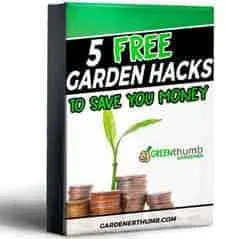
Enter your email below and we will send you a guide to help you SAVE money in your garden.
Best Times For Watering Your Vegetable Garden
Landscape irrigation systems and regular watering account for nearly 9 billion gallons of water per day. An estimated 50% of that water is lost due to inefficient methods of watering.
So it’s essential to know the best time to water your plants so you can get the greatest benefits without wasting a limited supply of water resources.
Plan Ahead of time
Plan ahead of time and do your research. Know how much water your plant needs before you turn on the garden hose or sprinkler. This will depend on the type and size of the plant.
On average, a small plant with shallow root systems needs to be watered up to 10 to 12 inches deep. This means sufficient water should reach its roots 12 inches below the ground.
You should also find out how many times a week your plant needs to be watered to keep the soil moist. Most plants do not require daily watering, you should water deeply but less frequently, and most plants will only need watering 1 to 2 times per week.
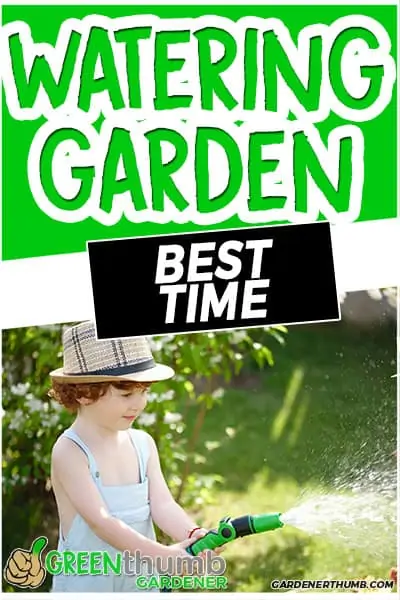
You can use a soil probe or a sharp tool to check if the moist soil already reached the correct depth of plant roots.
These innovative watering practices can reduce runoffs and decrease the need for water.
How Do You Know If Your Plant Needs Watering?
The best way to know if your plants need watering is to check the soil. Check its moisture by looking at the surface to see if it’s dry, cracked, or baked.
Hold the soil to see if it still sticks on your hand. If the soil barely sticks together in your hand and feels like dry soil, then it’s time to water them.
Check your garden in the late afternoon to look for wilted plants. Do not check it midday because they might just be adjusting to the heat of the sun.
That is not true, and water droplets will evaporate from the sun’s heat long before they can focus on the sun’s rays. Even if they don’t evaporate quickly, water droplets will not magnify the sunlight with enough energy to burn the leaves.
Watering in the morning saves a significant amount of water per week because it lessens water loss to evaporation and reduces the need for frequent watering.
Top Choice Is To Water Your Garden In The Morning
Your plant needs enough supply of water to live and survive. So it’s essential to water them at the right time of day. This will ensure healthy growth and development.
The best time to water your plant is early in the morning while the dew is still in the leaves and the temperature is still cool. Morning watering allows soil moisture to reach the roots before the hot weather evaporates the water.
The moisture stored underground will be enough to supply the needs of the plant.
There is a gardening myth going around that watering in the morning can cause the leaves to scorch. This is because the water droplets can magnify the sun’s rays and burn the leaves.
That is not true, and water droplets will evaporate from the sun’s heat long before they can focus on the sun’s rays.
Even if they don’t evaporate water droplets will not be able to magnify the sunlight with enough energy to burn the leaves.
Other Good Times To Water Your Garden
Watering early in the morning may not be possible for many due to the regular work schedule and other early morning appointments. If it’s not convenient for you to water early in the morning, you can water your plants late in the afternoon.
From a water conservation standpoint, watering in the late afternoon also saves precious water resources. It allows water absorption and soaking without too much evaporation caused by the heat of the midday sun.
There is no need for extra watering due to limited water loss.
It gives the plant a few hours of sunlight so that the leaves dry before night-time. Too much moisture encourages the growth of sooty molds and powdery mildew that can damage your plant.
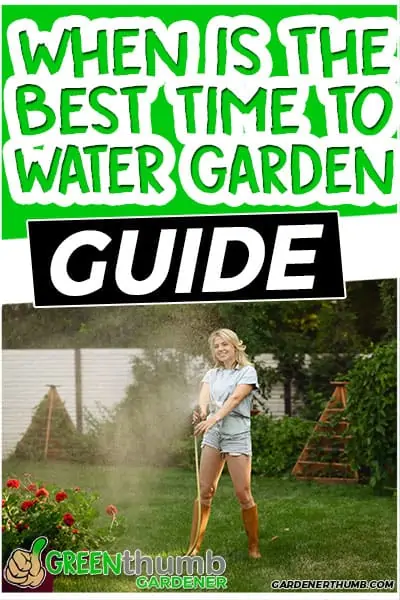
It’s best to use a soaker or drip irrigation system because it does not wet the leaves. Make sure there is adequate water so it can penetrate deep into your plant’s roots.
Please do not use excessive amounts of water because it may cause the roots to rot and damage your plant.
How Much Water Do you Need?
On average most garden plants need one inch of water a week, but it will depend on the water condition in your area. For areas with periods of drought, you may need a little more water.
In areas where rain is abundant, you don’t need to water that often because you already have a direct water source.
A healthy garden needs an adequate supply of water. You can have a garden with rain collecting barrels to save excess water and use the collected water to supply your plant’s needs.
You can also use soil moisture sensors to measure the amount of moisture in the soil so you can decide the right amount and timing of the watering.
Remember a wilted plant does not necessarily mean it lacks water. Wilting can also be caused by root rot and fungal disease caused by overwatering.
You can use drip irrigation systems for better control and better water absorption. Remember every drop of water is important.
Best Tips On How To Water Your Garden
Measuring 1 inch of water can be very difficult. You can make a DIY rain gauge by using old cans of tuna to measure the amount of water you used.
Marked the old cans at 1-inch intervals and leave them in a strategic location. Check them regularly if they are already 1-inch full.
Each interval means that you already have at least 1 inch supply of water. It is a simple but efficient way of checking the amount of water supplied to your plant. But remember, the water needs to be soaked to be absorbed by the roots.
To conserve water, you can use organic mulch to slow down evaporation from the soil. Do not mix the mulch with the soil and place them on top of the ground.
You can use a watering wand, can, or small hose to water your plants for a smaller garden. But for more extensive gardens, you can use drip irrigation. You can also make a DIY drip system using a hose or tubes with a hole in them.
Final Thoughts
We need to be responsible for the environment, and the best way to do that is to lessen water wastage by using a more efficient and well-planned watering schedule.
The key is efficient water delivery and proper water management. You can keep your plants healthy but at the same time conserve water.

